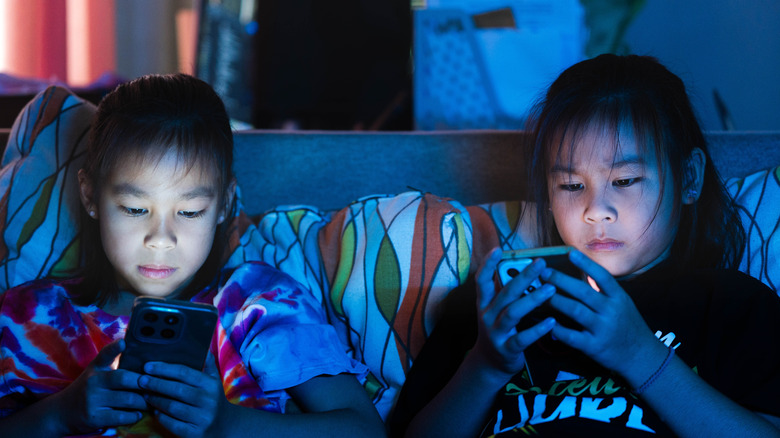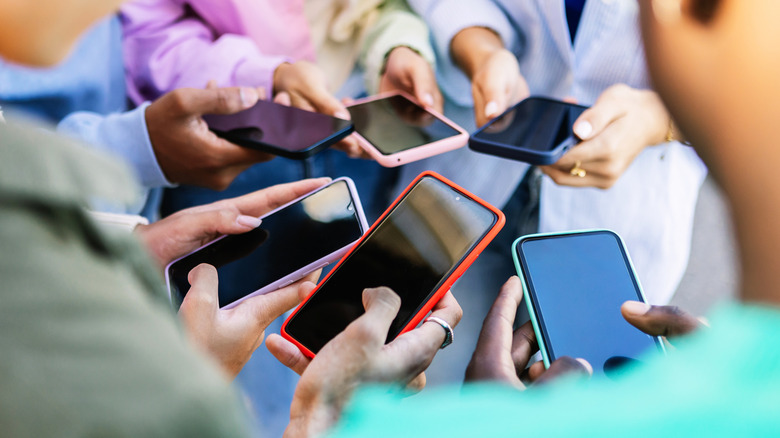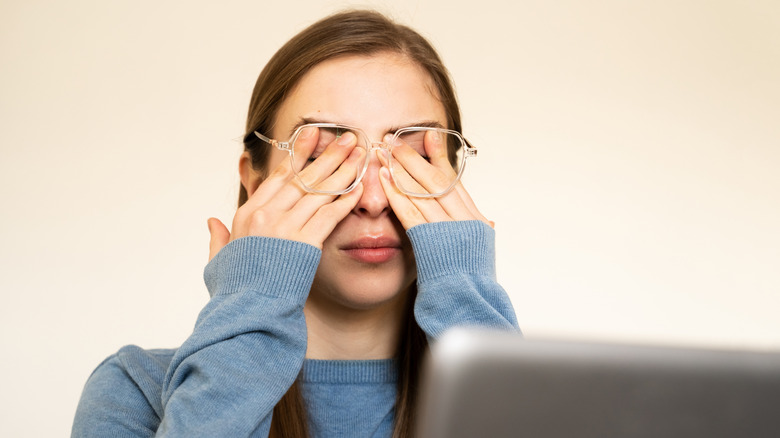Want To Be On Your Phone For More Than 2 Hours A Day? Don't Live In This Japanese Town
It can be far too easy to find yourself getting caught up in a doomscrolling session or watching that 30th Instagram reel. You might be working away, then suddenly be inspired and just have to check Google right away to learn why koala bears eat eucalyptus leaves almost exclusively. It happens to us all, but the problem arises when our phones' usage reports appear and we discover just how much time we spend on these little devices we carry everywhere. If you frequently check your screen time on your Android or iPhone and you're a little concerned, you're not alone.
That's the issue with many technologies: they can be an invaluable tool or a huge danger, depending on how they are used. Millions of us have become all but inseparable from our smartphones, and this can sometimes be detrimental to social interaction and our overall screen-free time. For reasons like these, the city of Toyoake in Japan's Aichi Prefecture has implemented something very interesting (or terrifying, depending on your view of the matter): limiting residents' use of mobile devices to two hours per day. This will also apply to mobile devices more broadly, such as tablets and gaming handhelds.
It might seem unworkable, given that workers and students will often be using such devices for longer than that in the course of an average day, but here's the crux of the matter — the proposal is more about reconsidering how free time is spent, and so only counts time spent on such devices during leisure time. This might help you gain overall health benefits; for example, you'll be protecting your eyes from the adverse effects of frequent daily screen time.
What this new rule might mean for residents
The BBC quotes the mayor of Toyoake, Masafumi Koki, as stating that "I hope this serves as an opportunity for each family to think about and discuss the time spent on smartphones as well as the time of day the devices are used." Screen-free time can certainly be a relief for tired eyes, but the approach seems somewhat heavy-handed. At the same time, though, the mayor went on to clarify that this isn't intended as an enforceable law, and "does not mean the city will limit its residents' rights or impose duties." There will not be a punishment for overstepping these limitations, then, but the hope seems to be that people will begin to regulate their habits in this way.
Attempting to enforce such measures, even aside from the rights-related concerns that the mayor has understandably raised, would pose a massive headache for the legal system. Around 69,000 people reside in Toyoake, and determining their time spent on smart devices and how much of it qualifies as 'working time' or not would be all but impossible. Nonetheless, through parental controls and similar measures, these guidelines could lead to a healthier approach to device use, something that many around the world strive for.
To expand on this, the new government ordinance recommends limiting screen time up to around 10 pm for junior high school children, and an earlier 9 pm for those at elementary schools. The city has also committed to reviewing the measure in the future to determine whether any changes should or could be made after receiving feedback. In any case, though, it's not just theoretical. After a majority of Toyoake's municipal assembly voted in favor of the measure, it was confirmed and will take effect on October 1, 2025.
The question of screen time is always lingering
For millions of people around the world, avoiding screens is impossible, as the majority of their work requires a smartphone, thus contributing to their overall screen time. In fact, in June 2025, The Guardian shared data from the Institute Of Practitioners In Advertising, which concluded that, in Great Britain, "over-15s spend on average 7.5 hours a day engaged in screen-based activities ... up from 6.5 hours a decade ago."
This, then, is potentially more than the amount of sleep we're getting daily, with the Mayo Clinic suggesting that 7+ hours per night is a general guideline for adults. Getting sufficient sleep can be a constant struggle, and it's one that definitely isn't helped by a social media rabbit hole that you may have fallen into after getting into bed. This is a primary aspect of the issue that the new measure in Toyoake was intended to address.
It's hoped that Toyoake locals will, in adapting to the two-hour recommendation for device use during leisure time, enjoy more or better quality sleep. There is certainly potential for this to be the case, as blue light emitted by the likes of smartphones and tablets can negatively affect the circadian rhythm, particularly if used last thing at night (a practice that this Japanese city's new ruling is designed to discourage). Exposure to blue light at night can lead to various unknown issues, such as sabotaging your weight-loss efforts. Ultimately, though, a decision such as that made by Toyoake is always sure to attract mixed opinions, but perhaps such guidance will be effective in helping individuals and families form the habits that work best for them.


